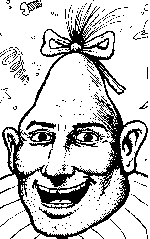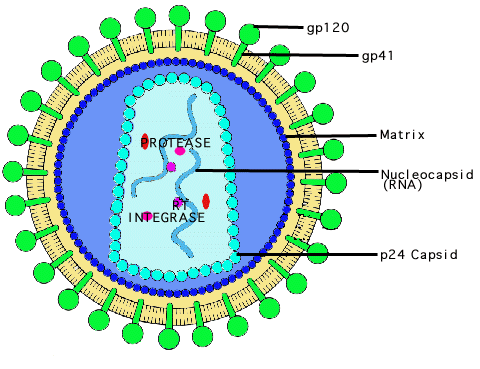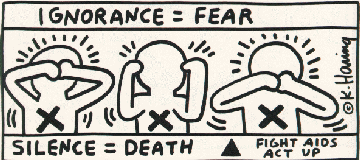| Class Date | Class Day | Today's
activities | Assignments due |
|---|
| Feb. 10 | Mon. | Library tour.
Data gathering in scientific discourse. | None. |
| Feb. 12 | Wed. | Background
lecture. Research methods. | None. |
| Feb. 14 | Fri. | Valentine's Day.
Did you know that St. Valentine was beheaded? Group
work in class. | 1st
Feeder Due |
| Feb. 17 | Mon. | Scientific
method as rhetoric. | None. |
| Feb. 19 | Wed. | Differences/Similarities in
Biology writing compared to Sociology. | None. |
| Feb. 21 | Fri. | Group work. | 2nd
Feeder Due |
| Feb. 24 | Mon. | Discuss
scientific professional writing methods.
Click Here
for Final Assignment
| None. |
| Feb. 26 | Wed. | Possible
speaker. If not, class discussion on research/data
collecting. | None. |
| Feb.
28 | Fri. | Group
work discussion of drafts in class.. | Draft of Final
Paper Due in class! |
| Mar. 3 | Mon. | Proper
documentation/format for scientific discourse. | None. |
| Mar. 5 | Wed. | Review.
Troubleshooting. Revision. | None. |
| Mar. 7 | Fri. | Turn in papers,
then catch your flights to Colorado, Florida, Bahamas, Fuquay-Varina, etc.
| Unit
2 Final Paper Due |
| Class Date | Class Day | Today's
activities | Assignments due |
|---|
| | NOTE: Schedule changes in red letters. | |
| Mar. 17 | Mon. | You're
baa-ack...Begin Unit 3 with comprehensive introduction
to HTML and the World-Wide Web (hopefully with a guest
lecture by someone from ATN, probably in the Greenlaw
computer lab...) | Bring floppy disks. |
| Mar. 19 | Wed. | Q & A about
HTML and some basic guidelines for working in groups (in Bingham
318). | None. |
| Mar. 21 | Fri. | Background
lecture and class discussion of unit
goals/requirements/expectiations. | None. |
| Mar. 24 | Mon. | HTML in-class
primer. Learn how to use Hypertext Mark-up
Language (the format in which we will be
producing our web pages). ABSOLUTELY ESSENTIAL
CLASS! | None. |
| Mar. 26 | Wed. | Group work on 1st
feeder. | 1st Feeder
Due. |
| Mar. 28 | Fri. | Good Friday. No
classes! Isn't any Friday without classes a good one though?
| None. |
| Mar. 31 | Mon. | Class
discussion on art history research techniques.
Click Here for Final
Assignment
| None. |
| Apr. 1 | Tue. |
Meet in Greenlaw Hall computer lab (rm. 221) at 5 p.m. for hands-on HTML
and web design session. Come either tonight or Thursday the 3rd (or both).
One class attendance is mandatory. | BRING FLOPPY
DISKS |
| Apr. 2 | Wed. | Tour of the
Ackland Art Museum. Meet in the lobby
of the Ackland (just behind First Union on Columbia--if you need directions,
please ask). Very important to be punctual
today! | Bring pencils, not pens, and paper for
note-taking. |
| Apr. 3 | Thurs. | Meet in
Greenlaw Hall computer lab (rm. 221) at 7 p.m. for hands-on HTML and web
design session. Come either tonight or Tuesday the 1st (or both). One
class attendance is mandatory. | BRING FLOPPY DISKS |
| Apr. 4 | Fri. | No class (see
Tues., April 1st or Thurs., Apr.
3rd) | None. |
| Apr. 7 | Mon. | Discussion of
multimedia presentation/How to present non-verbal
information effectively. | 2nd feeder due
in class |
| Apr. 9 | Wed. | Balancing
aesthetics and rhetoric in artistic criticism. | None. |
| Apr. 11 | Fri. | Programming
troubleshooting session. | None. |
| Apr. 14 | Mon. | Group evaluation
of Web page "drafts". Meet in Greenlaw computer
lab. | Bring disk(s) with page "drafts". |
| Apr. 16 | Wed. | Web page
composition Q & A. | None. |
| Apr. 18 | Fri. | How to
streamline HTML presentations. Combining effective
rhetoric with good visual presentation. | None. |
| Apr. 21 | Mon. | Troubleshooting.
Revision. Review. | None. |
| Apr. 23 | Wed. | Class
evaluations and general celebratory hysteria. | Turn in
disk(s) with group page and then sing Alice Cooper's "School's Out"
(skipping the verse about "school's been blown to pieces...") for the
remainder of the month. |
Coming to class is
extremely important, both to you as well as to myself and the rest of your
classmates. The assignments and projects in this class are heavily
geared towards group work and group analysis, so they are most effective
if everyone actively participates. For this
reason, I do take attendance and it does count as a part of your grade.
However, merely coming to class to be a warm body in a cold chair does not
constitute participation, so I base your class participation grade not
only on whether you have been in the classroom but if you brought your
mind and mouth with you. Everyone's opinion is equally valid in this class
(and equally open to discussion and criticism--mine included!) so I
encourage you to be a part of this class in more than just the seating chart.
If you must be absent, please try to get word to me that
day. I understand that people get sick, but bad hair days and hangovers are
not good reasons to miss a class, and not having an assignment ready to turn
in is an even worse reason. I will not kill you if you come to class without
an assignment. I might consider it, though, if you don't come to class to
avoid being seen the day an assignment is due. All you do to yourself in
that situation is fall further behind and put yourself in double jeopardy.
There is a correlation between performance and attendance and it is not
because of the points you lose on your participation grade.
There are two kinds, neither has a place in the classroom. Accidental
plagiarism is a topic we will address early in the semester in order to
prevent it before it happens. Basically, this occurs when a lack of proper
documentation or attribution makes something that someone else has written
seem like your own work. There are several pages in the back of the
Guide that cover this topic. Read them, for your sake and
mine. The second kind of plagiarism is the one that none of us wants
to deal with, namely intentional misrepresentation of someone else's work
as your own. Let me simply state now that it is not difficult to spot this
kind of plagiarism, whether in the form of papers downloaded from the
Internet, or "borrowed" from an organization's files. Thus, please, do not
give in to the temptation to pass these papers off as your own. It is,
simply put, not worth the risk, as this kind of cheating is a violation of
the Honor Code that will result in an F for the course and probable
suspension from the University. The work assigned in class is not given to
you as an irritating hurdle to jump on the way to a degree. It is designed
to help you in all your writing, now and down the line, and not doing the
work will honestly haunt you later even if it doesn't hurt you now. To
make a long story short,
If you find that you are still having problems that can't be resolved
in class or in consultation with your workshop groups, my office hours are
solely intended for your benefit. Stop by during the ones I have posted or
make an appointment with me and we can talk about whatever it is that
concerns you, whether or not it is a specific assignment. I don't mind
just chatting, but do ask that you defer to others who have specific
writing concerns. I am always happy to talk to students during this time,
or even if I have some spare minutes if you run into me on campus or in
the halls.




 Some
useful initial research and reference links...
Some
useful initial research and reference links...